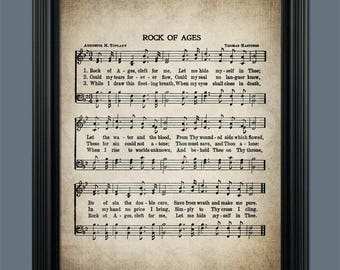
The hymn was also reportedly sung at the funeral of American President Benjamin Harrison because it was his favorite hymn, and the only one he ever tried to sing. 'Rock of Ages' is usually sung to the hymn tune TOPLADY by Thomas Hastings as revised by Lowell Mason or REDHEAD 76, also called PETRA (after Peter being referred to as the Rock by Christ), by Richard Redhead. 1 Samuel 2:2 - There is none holy like the Lord there is none besides you there is no rock like our God. Let me absent myself under one of your fragments. The next day he brought his translation for approval, and his rendering, as translated back into English, read like this: Very old stone, split for my benefit, The work was entrusted to a young Hindu Bible student who had the reputation of being something of a poet. He attempted to have translated into the native dialect, so that the natives might appreciate its beauty. Some of the most beautiful passages in the Bible, for instance are destroyed by translation. Not the labor of my hands Can fulfill Thy law’s demands Could my zeal no respite know, Could my tears forever flow, All for sin could not atone Thou must save. …when the London went down in the Bay of Biscay, January 11, 1866, the last thing which the last man who left the ship heard as the boat pushed off from the doomed vessel was the voices of the passengers singing “Rock of Ages.”Ī missionary…complained of the slow progress made in India in converting the natives on account of explaining the teachings of Christianity so that the ignorant people could understand them. About Press Copyright Contact us Creators Advertise Developers Terms Privacy Policy & Safety How YouTube works Test new features Press Copyright Contact us Creators. Rock of Ages, cleft for me, Let me hide myself in Thee Let the water and the blood, From Thy wounded side which flowed, Be of sin the double cure, Save from wrath and make me pure. Prince Albert of Britain asked it be sung to him as he lay dying. This hymn was sung at the funeral of William Gladstone in Westminster Abbey, London, England.


There is a precipitous crag of limestone a hundred feet high, and right down its centre is the deep recess in which Toplady sheltered.’ Sir William Henry Wills, in a letter to Dean Lefroy, published in the Times in June, 1898, says ‘Toplady was one day overtaken by a thunderstorm in Burrington Coombe, on the edge of my property, Blagdon, a rocky glen running up into the heart of the Mendip range, and there, taking shelter between two massive piers of our native limestone rock, he penned the hymn,


 0 kommentar(er)
0 kommentar(er)
